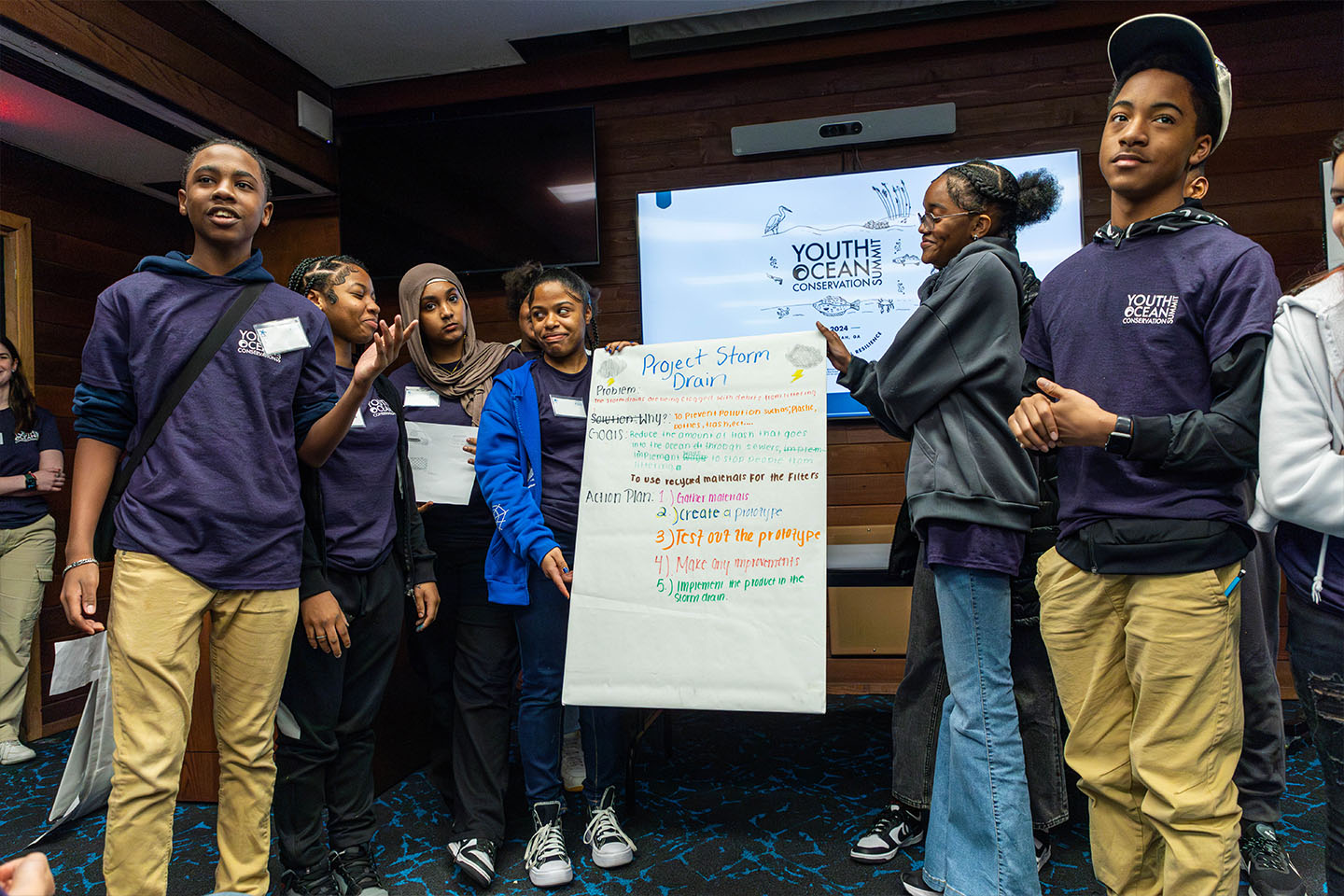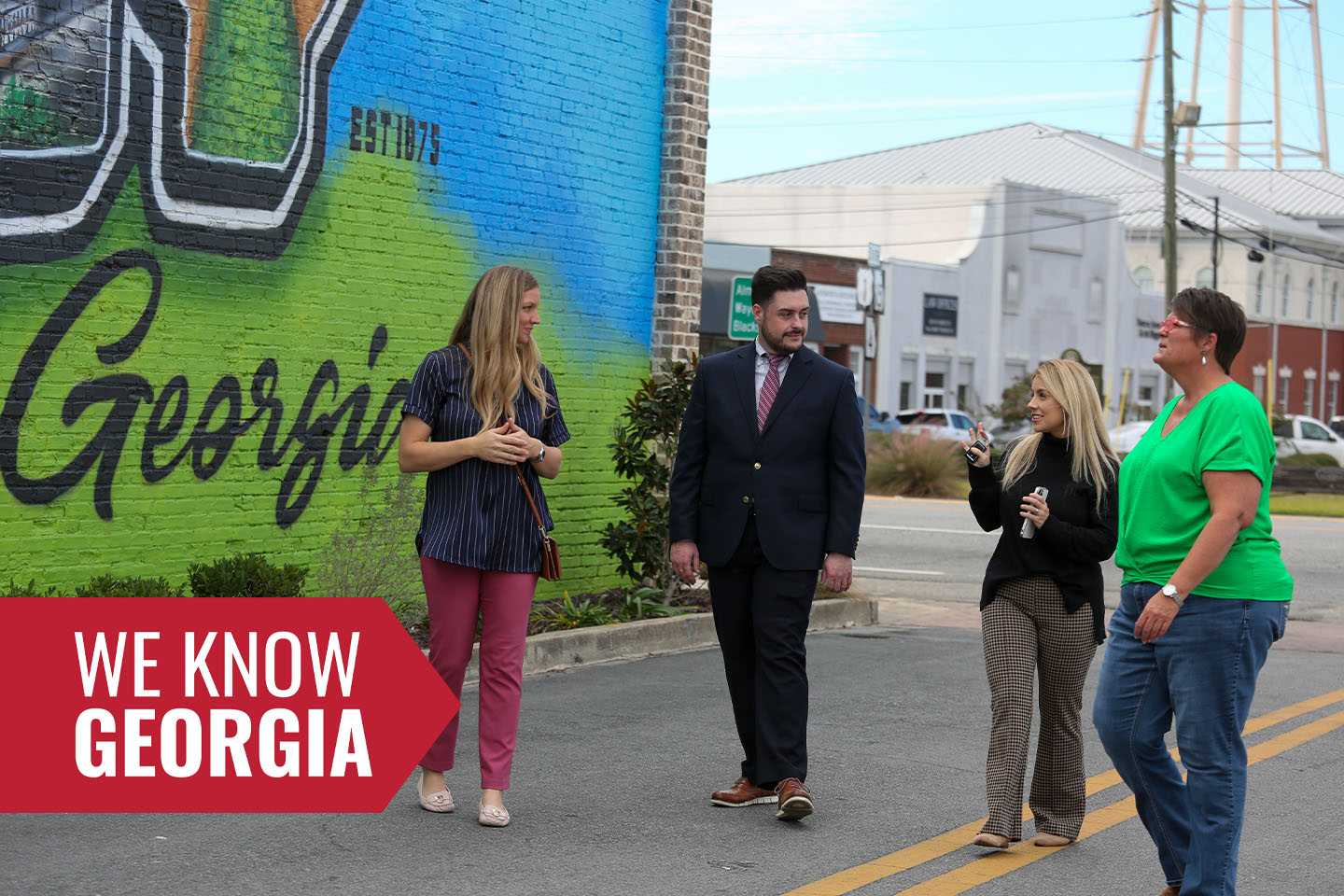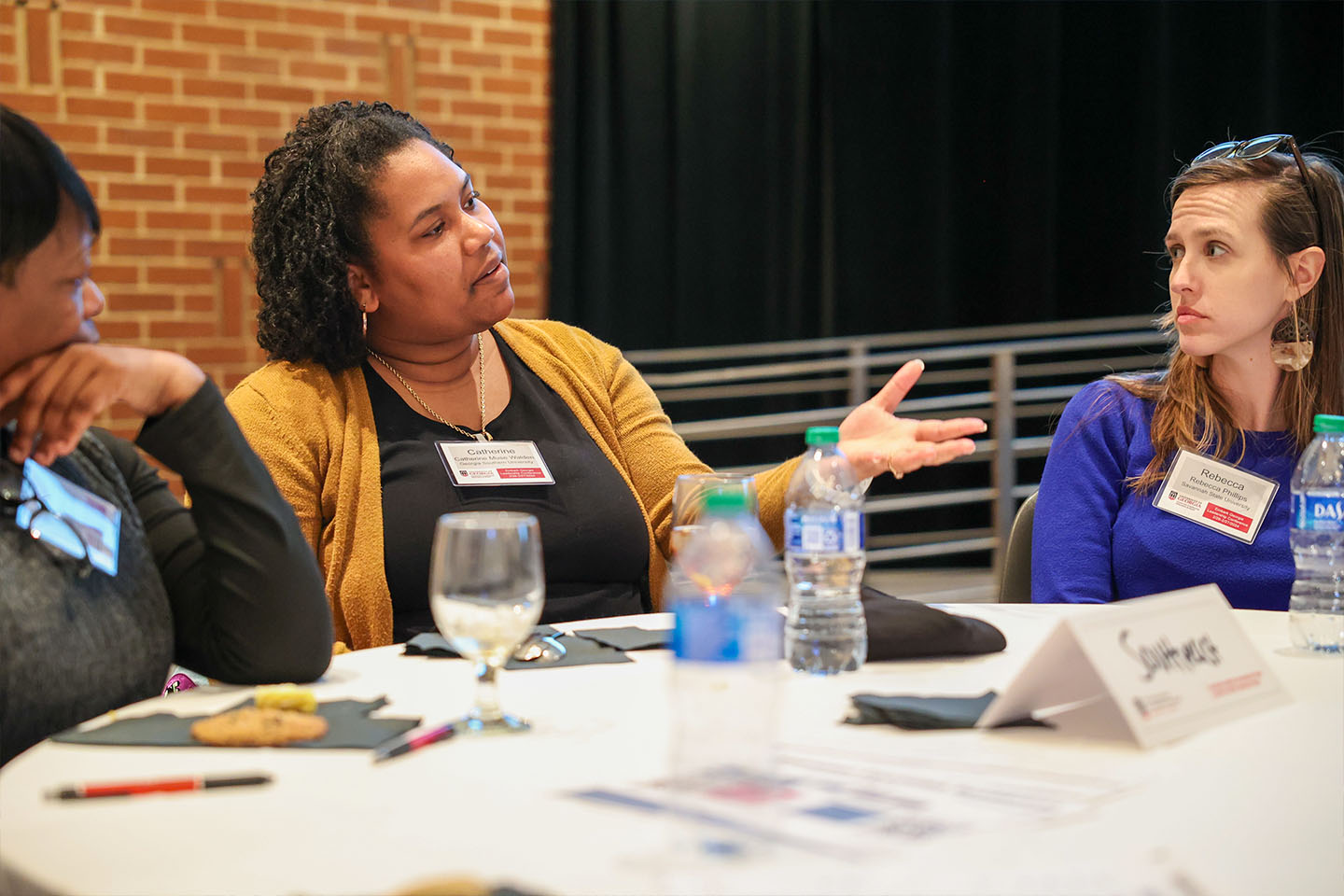The first Georgia Civic Health Index shows the state’s levels of civic engagement are among the lowest in the nation.
“I think it’s clear we have our marching orders,” said Betsy Covington, director of the Community Foundation of the Chattahoochee Valley, during a presentation of the index Tuesday in Macon at the Peyton Anderson Community Services Building.
According to the report, Georgia ranks low among states in measures of community involvement, political action and confidence in institutions. For example, Georgia ranks 41st in voter registration and 38th in voter turnout (62 percent and 43.6 percent, respectively).
Ilir Zherka, director of the National Conference on Citizenship, said when community members are engaged, organizations and government are better able to serve them. He also said there’s a correlation between civic health and economic resiliency. States with better civic engagement saw unemployment rates improve sooner after the recession than states with poorer engagement.
“The report is eye-opening,” Zherka said. “Georgia has a lot of work to do, but it’s worth it.”
Zherka said the report is simply a starting point to identify a base line of civic engagement so a conversation about improving community involvement can begin.
“Our table is really big,” Covington said. “We just don’t know how to get everyone to pull their chairs up just yet.”
Travis Blackwell, director of Bibb County Family Connection, said organizations often do the planning and forget that the people it is planning for also need to be contributing to the conversation. He said he thinks it’s possible for nonprofits to help stabilize families and people’s situations, while at the same time engaging them in the work of community ownership.
“Everyone needs to be at the table,” Blackwell said. “Those in poverty, middle class, wealthy class. All need to be at the table to help plan.”
The news from the report wasn’t all bad. The low numbers representing political involvement contrast with higher numbers representing political interest and expressing opinion. Georgia ranks 6th in expressing opinions online and 17th in talking about politics among family and friends. Georgia also ranks about average for most measures of social connectedness, including talking to neighbors.
The report found that Georgians who are older, more educated or have higher income demonstrate better rates of community involvement, and there is no significant difference between Georgia’s white and non-white populations.
“Millennials,” or those born between 1981 and 2004, were identified as a group that lags behind others in numbers of community participation.
Kris Hattaway, director of place for downtown booster group NewTown Macon, spoke as a representation of millennials and said she is involved because she is fortunate enough to have role models and mentors who gave her opportunities to be civically engaged.
Hattaway’s advice to community leaders who want to increase youth involvement is to start with three simple things: provide opportunities for them to learn about civic engagement, ask youth to participate instead of waiting for them to seek opportunities and reach out to them using social media.
Gaye Smith, director of Georgia Family Connection Partnership, said she envisions a community where residents are engaged and work with other residents and the government to succeed. She said the information from the report will help the partnership to locate grants and funds in this area and to reach out to young people.
“This report allows us to be more purposeful going forward,” she said.
The Georgia Civic Health index was authored by The Carl Vinson Institute of Government at the University of Georgia, Georgia Family Connection Partnership, Georgia Forward and the National Conference of Citizenship. The full report can be found at the National Conference on Citizenship website at www.ncoc.net/GeorgiaCHI.



